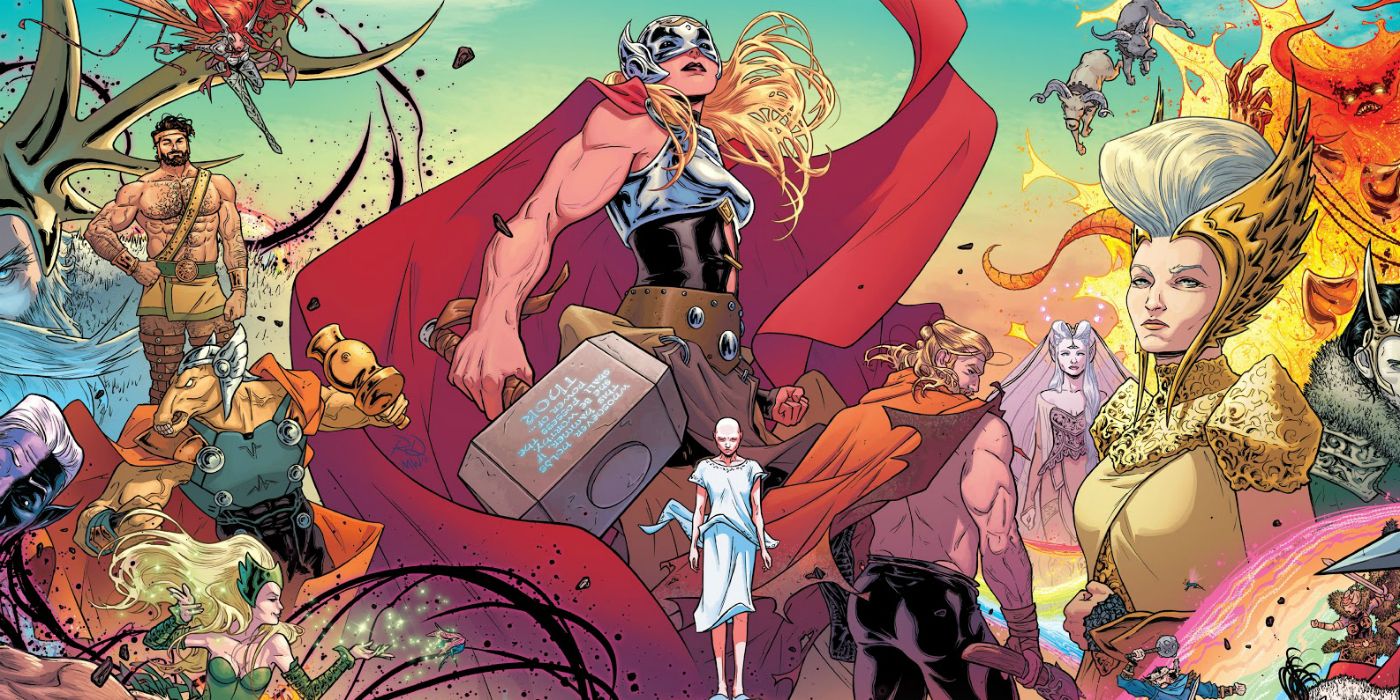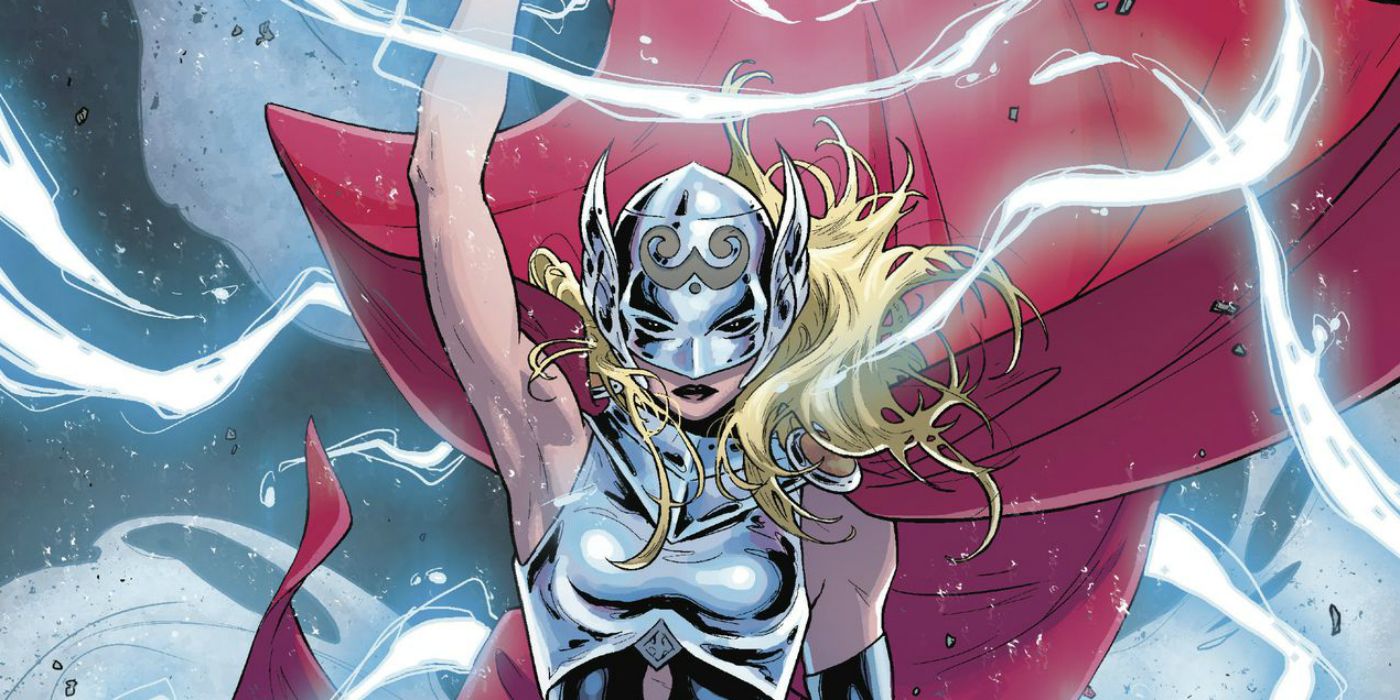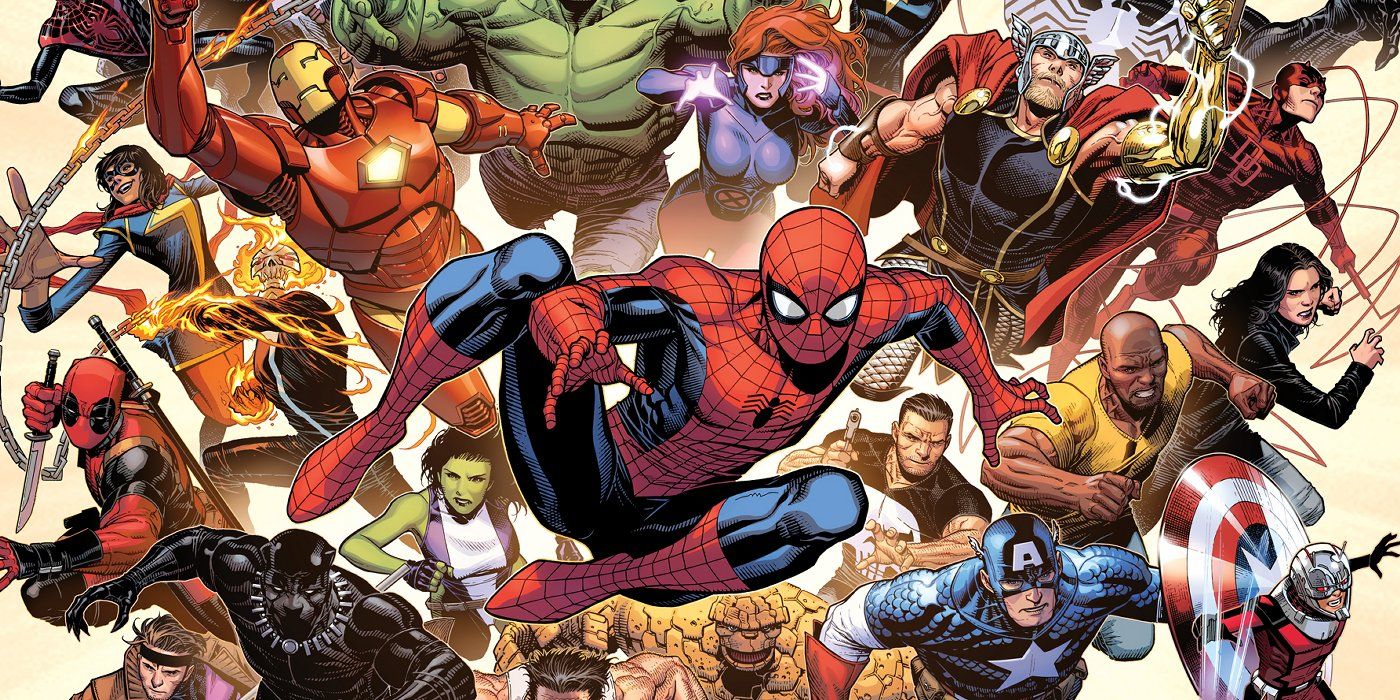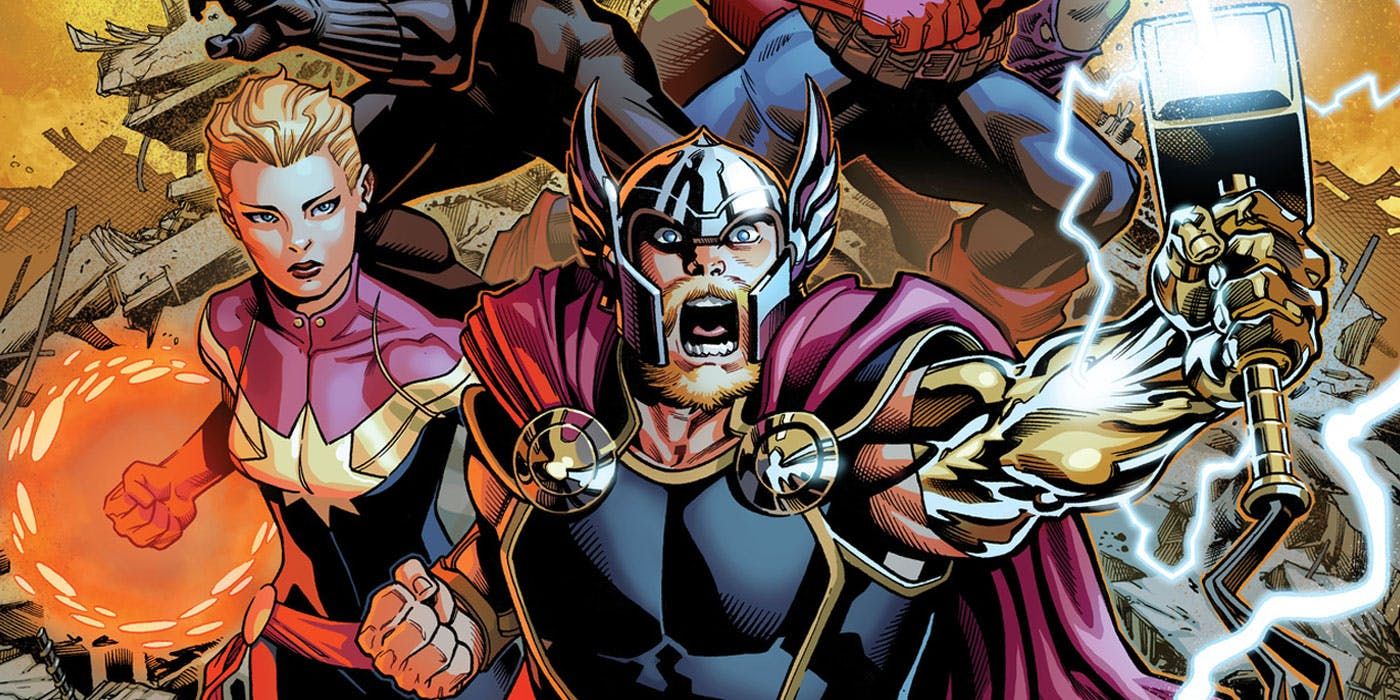Jane Foster's death in Marvel Comics has always seemed to be inevitable. Writer Jason Aaron's run has revealed that Jane is dying of cancer and worse still, every time she picks up Mjolnir and transforms into Thor, the effect of Jane's chemotherapy is reversed. The cancer is killing her, and Jane's frail human body cannot survive another transformation. Unfortunately, all this is set against the backdrop of the War of the Realms, and Jane has just picked up Mjolnir one last time in order to fight to save Asgard from Mangog.
This has certainly proved to be a tremendous plot, filled with power and emotion. Jane has been Thor for three years now, and the tragedy of her story is building to a head. But, as effective as this story may be, it's also a flawed one. The fundamental problem is that Jane Foster is Marvel's best Thor, and there's no way the Odinson can take her place again.
Jane Foster is Marvel's Best Thor
It's not unusual for Mjolnir to be wielded by someone other than Thor Odinson. The enchanted hammer may not have survived long enough to be held by anyone other than Thor in the movies, but many other characters have picked it up in the comics. In fact, even Captain America's been able to heft Mjolnir on occasion. But only two of these Thors have really made a mark. The first is Beta Ray Bill, and the second is Jane Foster.
RELATED: 15 Characters Who Have Lifted Thor's Hammer
Where Beta Ray Bill is a powerful alien, Jane is remarkable precisely because of her humanity. She's an ordinary human being, one who has lived in the realm of gods, and yet now walks among them. Jane has been challenged every step of the way; the gods haven't taken kindly to the female Thor, and she's even wound up dueling Odin himself. Most remarkable of all, Jane's very humanity has allowed her to tap into Mjolnir in a way even the Odinson never has. She alone learned the secret of the God Storm that lies deep within Mjolnir, granting the hammer its incredible power. In Jane's hands, Mjolnir is no mere weapon; it is an ally in its own right.
Of course, the reality is that Jane's very humanity is what makes her worthy. She is worthy precisely because she knows the world needs a Thor, and is willing to pay the price to be one. Jane is well aware that her mortal body is dying. When she picked up Mjolnir that last time, she knew that it would cost her everything. This is what makes her a true hero; she knows the price, and she willingly pays it.
The Death of Female Thor Is Inevitable
The sad truth is that Jason Aaron's story was always going to end in Jane's death. There simply isn't a satisfying way for even a writer of Aaron's caliber to write himself out of this corner. Aaron can draw it out all he wants, but this story needs to come to a head with Jane's death.
And Marvel understands this. That's why they've drawn a deliberate parallel between Jane Foster's death and that of Captain Marvel. In 1982, Jim Starlin wrote a haunting graphic novel in which one of Marvel's heroes, Mar-Vell, died of cancer. It was a powerful and emotional end to the original Captain Marvel's story, and the impact of that event resonated to the present day; Carol Danvers now bears that title in his honor. But, while there are parallels, the reality is that these deaths are very different.
RELATED: Captain Marvel To Include Kree Hero Mar-Vell
For Captain Marvel, death came as something of a surprise. He was unaware of his cancer until it was far too late to save him, and Marvel's greatest minds labored in vain to cure him. In contrast, for Jane, death has been a constant companion for the last three years. Fundamentally, Jane has had to decide what would define her; the cancer and her mortality, or the hammer and her heroism. As a result, the simple truth is that - unlike Mar-Vell - Jane has actually chosen this. She is the one who decided to wield Mjolnir one last time, knowing what it would mean for her. Not only has Jane chosen this, but she was always going to do so.
"The Illusion Of Change"
Most comic book superheroes are effectively immortal. Publishers want to continue telling their stories for decades, and so the characters wind up locked in a perpetual status quo. Stan Lee famously called it "the illusion of change," the idea that everything can be changed around the hero - but in a careful, strategic way that ensures their core concept remains the same. As Peter David expressed it, focusing in on Spider-Man:
"Over the years, Stan and Steve (and later John) put him through changes. But when you get down to it, they satisfied the concept of illusionary change. Peter went from high school to college¦ but he was still a student. Betty Brant and Liz Allen gave way to Gwen Stacy and Mary Jane Watson, and nemesis Flash Thompson stepped aside for nemesis Harry Osborn. Otherwise, though, he was pretty much the same guy. Sure, he got a motorcycle, which was the ultimate in cool¦ but he wound up having to sell it, thereby bringing the money problems back to the forefront. It was evolution, but 360 degrees' worth. Same old Spider-Man, same old Peter Parker, same old problems at the core."
Let's assume, for one second, that Aaron thought up a way to keep Jane alive, and to continue her story as the mighty Thor. It simply wouldn't work; it would transform Jane's core concept, in such a way as to effectively make the character unrecognizable. Jane Foster isn't a worthy Thor simply because she's female; she's not a great hero because she can wield Mjolnir. She is worthy because her heroism costs her everything. Her core concept is essentially the ticking of a clock, one counting down to the moment of her death. The awareness of that ticking clock is what makes her a hero. When Jason Aaron came up with the idea of a female Thor, it was with the awareness that she came with an expiry date.
RELATED: Marvel Prepares Fans For The Death of Thor
Thor Odinson's Return Isn't Enough
The problem then is what next? Marvel is gambling that their ongoing story will be enough to keep readers. They're hoping readers have become invested in Aaron's supporting cast, and in the War of the Realms. The female Thor has been a tremendous success, but now the mantle is returning to the Odinson. It's true that Thor's status quo remains subtly different - Marvel's latest marketing talks about "the production of hundreds of hammers" - but this is effectively a bit of a reset. It's back to normal, with the Odinson in the driving seat of Thor comics once more. Essentially, to paraphrase Peter David, "it's evolution, but almost 360 degrees' worth."
But Marvel's normal marketing strategies simply aren't up to the task this time round. The death of a starring character is a different form of relaunch. Captain Marvel's death worked because it was in a self-contained graphic novel, not in an ongoing series. For decades, that death effectively brought an end to the Captain Marvel brand. It wasn't until 2012 - a full 30 years later - that Carol Danvers assumed the mantle of Captain Marvel (and new hero Kamala Khan took up Danvers' old title as Ms. Marvel). In contrast, this latest death is merely a single hurried breath, before the next Marvel relaunch. It's more than a little disrespectful to fans of the character.
Right now, Jane Foster's death obscures the future of the Thor brand over in the comics. She has had a powerful impact, and has come to be loved by fans. Marvel has only just begun marketing the post-Foster stories of the Thunder God, but they don't seem to understand the reality of it; they've built this death up to the point where it truly matters to readers. Readers have grown to love Jane Foster, and will need time to deal with the emotions of the character's death. For Jason Aaron, this seems to be the end of the second phase of his War of the Realms arc; for the readers, it's the end of an entire arc, of a character journey that fans have become deeply invested in. Restoring the Odinson to center-stage isn't nearly enough.
It's ironic; the death was always going to happen. But it was executed with so much style that it has had an impact Marvel could never have expected. Jane Foster has become their best Thor; it's just such a tragedy that it will be the death of her.





